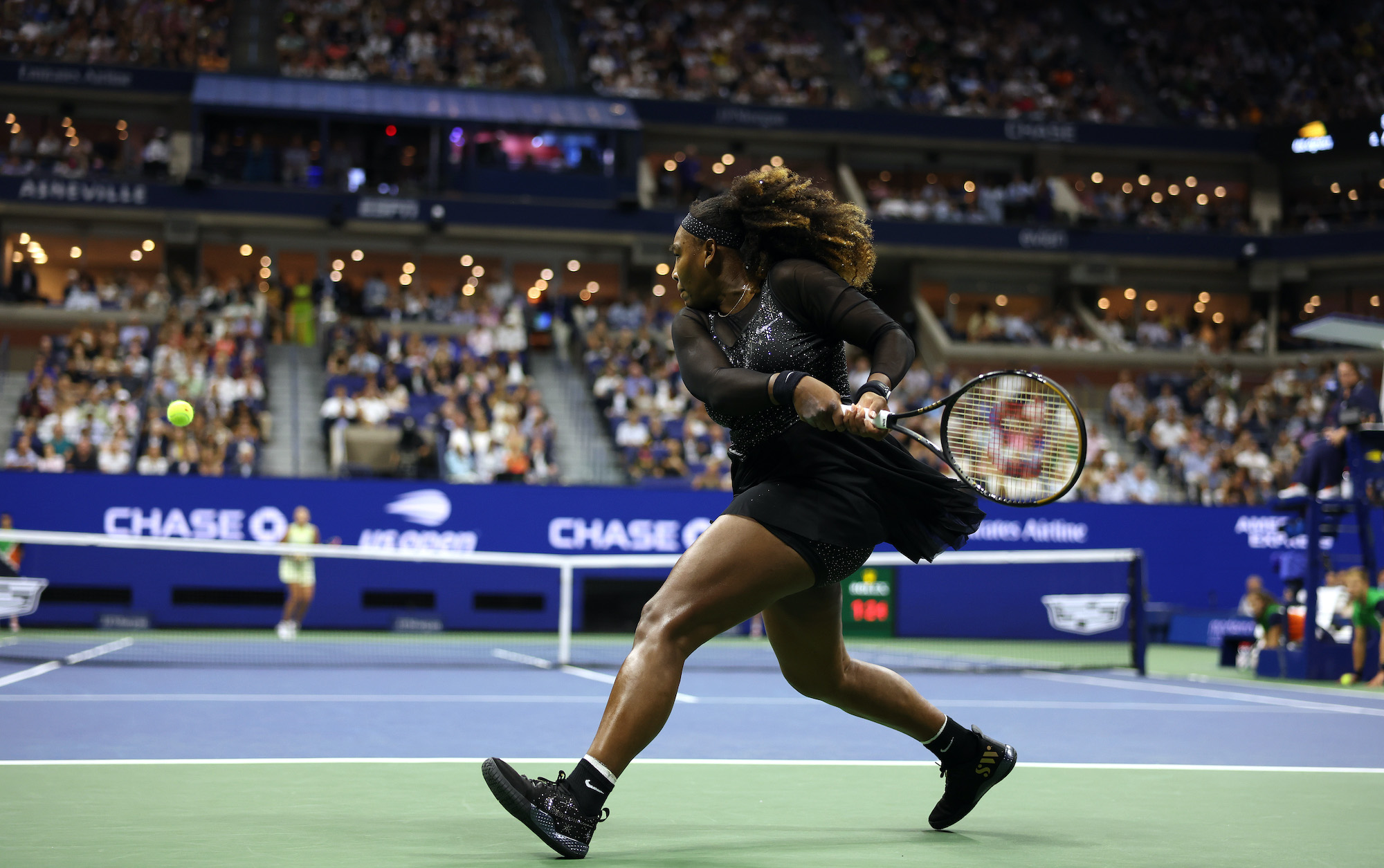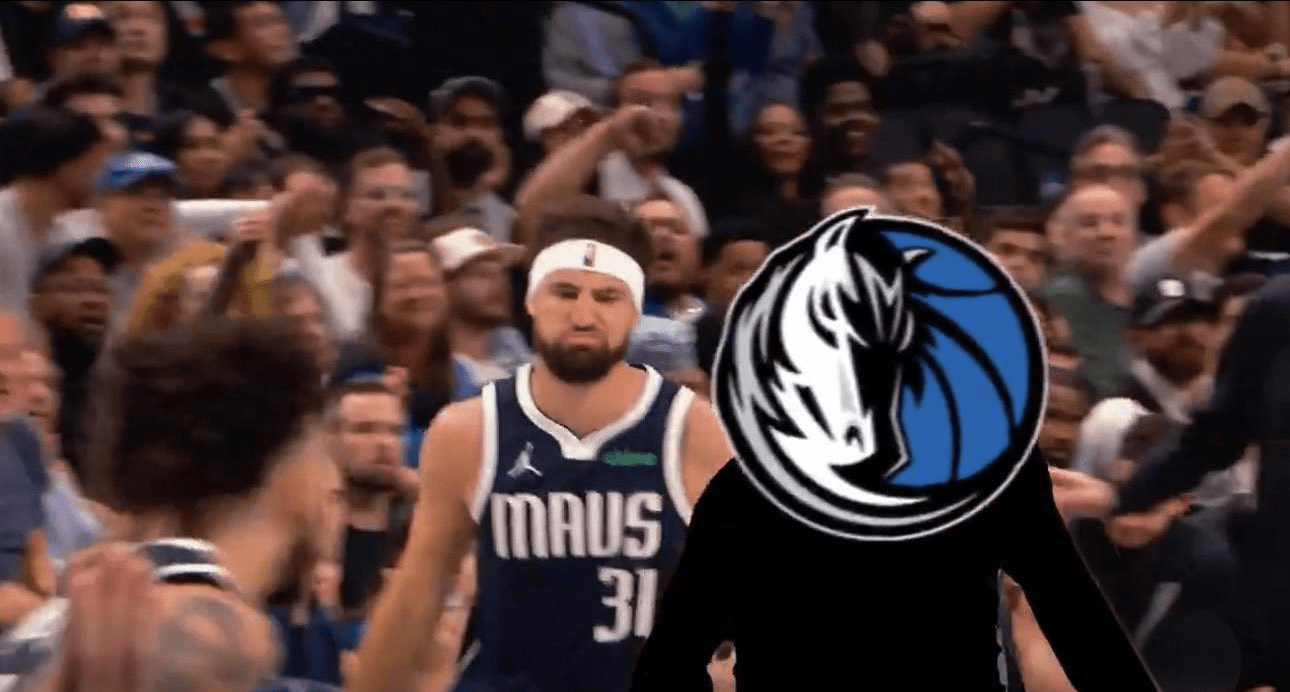FLUSHING, N.Y. — I wonder if I should get my ears checked. I am in the thick of 29,959 fans, who have apparently never cared about any tennis player—including previous versions of Serena Williams—as much as they care about Serena Williams at this exact moment, and their applause has somehow sharpened to a point. It's piercing in a way that cannot possibly be the sum of so many dull palms thudding together. It feels like a pool cue going through my right ear and out the left. Last month I went to a hardcore show in a tiny bar and forgot my earplugs; this is an even more fearsome aural assault. But there's not a grimace to be found for miles. In the second round of her final U.S. Open run, Williams has just taken the first set in a tiebreak over Anett Kontaveit, the world No. 2 who admittedly hasn't done that ranking justice this summer.
This version of Serena bears little resemblance to the one that faltered in Toronto and Cincinnati earlier in August, with deflating losses that made this Open appear more ceremonial than it has turned out to be. Whatever she did between now and then has been restorative. Now she is smoking her first serve, as her skirt kicks up and the 400 embedded diamonds in her outfit catch the floodlights. She's moving well enough to hang in these draining rallies. That didn't look possible earlier this summer. It arguably didn't look possible this week. Her first-round match against Danka Kovinic could've been written off as a fluke win over a shaky foe. But this feels real. I am permitting myself belief. Nobody else in the stands seemed to need permission.
To open the second set, Kontaveit is annihilating the ball, and she breaks serve at love. Her forehand was the best shot on tour in the tail end of last season, when she went on a 29-4 heater that earned her a large share of her current ranking. It's looking like that shot once again. The swings are getting freer and bigger, and the ball pings faster and flatter off her strings. The fluidity of these strokes is hypnotic, notwithstanding the tiny "achoo" that accompanies each strike. The crowd has learned how to make some different sounds at this point. Whenever Kontaveit wins a game, it issues a bleary murmur. Serena is down two breaks. She breaks back once, but her opponent has her teeth deep in every game. Kontaveit goes up two breaks again, and that's how the set ends.
While all of this is happening I'm playing musical chairs, hopping around from money seat to money seat until someone tells me their wife or client has returned from concessions with shrimp cocktail, so I should leave. (It's puzzling that anyone would shell out for the privilege to stand on concrete for 30 minutes and watch Serena's possible last-ever forehands on the TV monitor in the hall, but I guess the crustaceans hit different at Arthur Ashe Stadium.) My seating insecurity is adding a new layer of suspense to a match that needs none. It's worth staying as close to the fight as possible, and besides, I'm getting a cross-section of this supremely lit crowd. At one point I'm close enough to Alexis Ohanian to hear his solitary clap in an otherwise quiet stadium—a husband's analog +1. Later, I'm next to a silver-haired woman whose whole being vibrates with every solidly struck Serena groundstroke. Then I'm next to an aging bro who knows tennis technique down cold, and whose stubble is flinging Heineken residue onto my right knee. It's the stereotype of an Open attendee who might've held starkly different opinions about Serena Williams a decade ago, but it's all love right now. "Out," he honks, when a Kontaveit forehand lands near the sideline. Some chunk of the stadium is cheering whenever her serve goes into the net. They're even booing a Hawk-Eye replay of her winner. This is as American as tennis ever gets.
To their colossal relief, Serena takes hold of the third set with an early break. The question is now whether she can serve it out and keep this collective fantasy alive. Her second serve has looked rickety. The backhand has gone stiff at times. At 4-2, 15-15, the players deliver a 30-second micro-drama rich enough to justify the price of admission. Kontaveit laces a backhand down the line. It'd be an automatic winner on the Serena of early August, but this Serena takes five urgent steps to the ball and stabs it back deep into the opposing court and everywhere there are hushed oohs of hope. Kontaveit steps into a meaty crosscourt forehand but now Serena is standing right in its path, aiming an even meatier forehand down the line. That forces Kontaveit to throw up a moon ball. Instead of moving forward and plucking that out of the air, Serena backpedals—there's the sound of so many teeth being sucked—and moon-balls it right back, relinquishing her advantage. A few exploratory strokes sail back and forth down the middle of the court until, without any omen, from unthreatening court position, Serena angles a nasty backhand into the service box, setting her up for an easy putaway, and everywhere are the sounds of anarchic joy. She holds that game and immediately goes on to break at love, 7-6(4), 2-6, 6-2. She twirls. The crowd is on their feet and they stay there even as the Open thirstily replays that same Oprah-narrated video they used on Monday.
When asked in the on-court interview if she's surprised herself with her level of play, she replies with a dry-ice chuckle. "I mean, I'm just Serena, you know," she says. For the first time since she was a teenager, she feels like she's playing the U.S. Open freed from expectations. "Honestly, I'm just looking at it as a bonus. I don't have anything to prove. I don't have anything to win. I have absolutely nothing to lose." Serena Williams has been a known threat ever since she won her first major here 23 years ago. Now that weight is gone. "I've had an X on my back since '99," she says, dropping the hardest bar of the tournament. She may still have more in store.
Correction: The original version of this article had the score of the third set as 6-3. It was 6-2.





